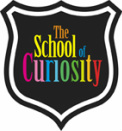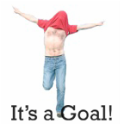The Northern Quarter in Manchester possesses a certain kind of magic.
Aesthetically it occupies a space somewhere between New York and Stalingrad.
In historical space it seems suspended in another time. An era before retail chains created the identikit urban streetscape.
It was here with my Director of Curiosity, Tom Calderbank, that I stumbled upon another kind of space. A magic space which we are all capable of tapping into.
We entered a bar aptly named ‘ODD' where Tom did a rather odd thing. Raising a wooden chair high into the air he posed a question. "What is more important? A chair or the ‘idea' of a chair?"
I tried to create a face which at once suggested intrigue with a hint of bafflement, whilst thinking internally that perhaps he should not have enjoyed that second pint of strong lager.
On reflection, I can see now that Tom was opening a door to a conversation about the nature of magic. For those of us who stepped through the door and explored the power of consciousness - the place from which we mine ideas - things may never be the same.
So what is more important, the chair or the ‘idea' of a chair? Well if all the chairs in the world somehow mysteriously disappeared tomorrow, we would have no chairs, but we would still have the idea of a chair. Because we still have the idea, we could, if we so desired make more chairs.
The immaterial ‘idea' has an immortality that material things don't possess. Yet we spend little time exploring the world of consciousness - the rich source of new ideas - preferring instead to opt for hard edged; solid things; and scientific rationality.
If there is such a thing as magic, as opposed to trickery or illusion, surely we would find it by exploring our consciousness - the landscape of ideas which exists in our heads and which science struggles to explain. Many of us have little idea how to enter this rich landscape, let alone try to.
Suppose that ideas could influence behaviour, and that behaviour could change the way things are. When we do this with ideas that can be objectively explained and replicated we call that science. Some ideas though such as dreams; fantasies; imaginings have no objective scientific credentials. Yet these too can transform the way things are. Would that be magic? Would that be a form of alchemy? Turning a series of chemical impulses into a material change?
Consider this. Tom who is a lover of old buildings went into the derelict, crumbling Florence Institute, a former Victorian boys club in the Dingle area of Liverpool. It was twenty years ago and it appeared that the building would crumble into dust.
Inside he was moved by the Roll of Honour showing the names of the dozens upon dozens of ‘Florrie' boys who had perished in World War One.
Outside he crossed the street to view the building from a distance. In his mind he saw the Florrie conscripts in their uniforms. They were hanging from the windows calling to him. "Tom save us; Tom you've got to save the Florrie; Tom, do it for us Tom".
Did that really happen? Was it an illusion? Was it the product of an over active imagination?
Who can say? What is important is that an image which existed in his world of consciousness had a marked effect on his behaviour. He determined, twenty years ago that he would save The Florrie. He was practically penniless and calculated that he would need £6.6 million. There were those that believed he was crazy; others thought him a misguided soul; and those that branded him a a little ‘simple'.
Yet his image of the Florrie boys, real or imagined, drove him on. In June 2010 work begins on restoring The Florrie and bringing it back to life.
An image from the non-material world influenced his behaviour; his behaviour influenced that of others; together they changed the way things are. That has to be a kind of magic. A social form of alchemy.
We all have the power, if we delve into the landscape beyond the material world - the richness that lies inside our heads - to change the way things are.
That's my kind of magic.
For a great exposition of why we should embrace the magic of the mind see Magic running in the gutters like lighteningin Alan Moore's Dodgem Logic
Aesthetically it occupies a space somewhere between New York and Stalingrad.
In historical space it seems suspended in another time. An era before retail chains created the identikit urban streetscape.
It was here with my Director of Curiosity, Tom Calderbank, that I stumbled upon another kind of space. A magic space which we are all capable of tapping into.
We entered a bar aptly named ‘ODD' where Tom did a rather odd thing. Raising a wooden chair high into the air he posed a question. "What is more important? A chair or the ‘idea' of a chair?"
I tried to create a face which at once suggested intrigue with a hint of bafflement, whilst thinking internally that perhaps he should not have enjoyed that second pint of strong lager.
On reflection, I can see now that Tom was opening a door to a conversation about the nature of magic. For those of us who stepped through the door and explored the power of consciousness - the place from which we mine ideas - things may never be the same.
So what is more important, the chair or the ‘idea' of a chair? Well if all the chairs in the world somehow mysteriously disappeared tomorrow, we would have no chairs, but we would still have the idea of a chair. Because we still have the idea, we could, if we so desired make more chairs.
The immaterial ‘idea' has an immortality that material things don't possess. Yet we spend little time exploring the world of consciousness - the rich source of new ideas - preferring instead to opt for hard edged; solid things; and scientific rationality.
If there is such a thing as magic, as opposed to trickery or illusion, surely we would find it by exploring our consciousness - the landscape of ideas which exists in our heads and which science struggles to explain. Many of us have little idea how to enter this rich landscape, let alone try to.
Suppose that ideas could influence behaviour, and that behaviour could change the way things are. When we do this with ideas that can be objectively explained and replicated we call that science. Some ideas though such as dreams; fantasies; imaginings have no objective scientific credentials. Yet these too can transform the way things are. Would that be magic? Would that be a form of alchemy? Turning a series of chemical impulses into a material change?
Consider this. Tom who is a lover of old buildings went into the derelict, crumbling Florence Institute, a former Victorian boys club in the Dingle area of Liverpool. It was twenty years ago and it appeared that the building would crumble into dust.
Inside he was moved by the Roll of Honour showing the names of the dozens upon dozens of ‘Florrie' boys who had perished in World War One.
Outside he crossed the street to view the building from a distance. In his mind he saw the Florrie conscripts in their uniforms. They were hanging from the windows calling to him. "Tom save us; Tom you've got to save the Florrie; Tom, do it for us Tom".
Did that really happen? Was it an illusion? Was it the product of an over active imagination?
Who can say? What is important is that an image which existed in his world of consciousness had a marked effect on his behaviour. He determined, twenty years ago that he would save The Florrie. He was practically penniless and calculated that he would need £6.6 million. There were those that believed he was crazy; others thought him a misguided soul; and those that branded him a a little ‘simple'.
Yet his image of the Florrie boys, real or imagined, drove him on. In June 2010 work begins on restoring The Florrie and bringing it back to life.
An image from the non-material world influenced his behaviour; his behaviour influenced that of others; together they changed the way things are. That has to be a kind of magic. A social form of alchemy.
We all have the power, if we delve into the landscape beyond the material world - the richness that lies inside our heads - to change the way things are.
That's my kind of magic.
For a great exposition of why we should embrace the magic of the mind see Magic running in the gutters like lighteningin Alan Moore's Dodgem Logic


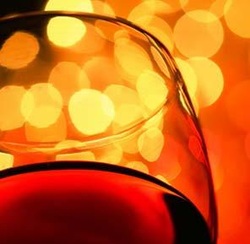

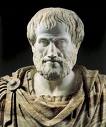
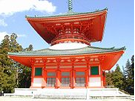
 RSS Feed
RSS Feed

